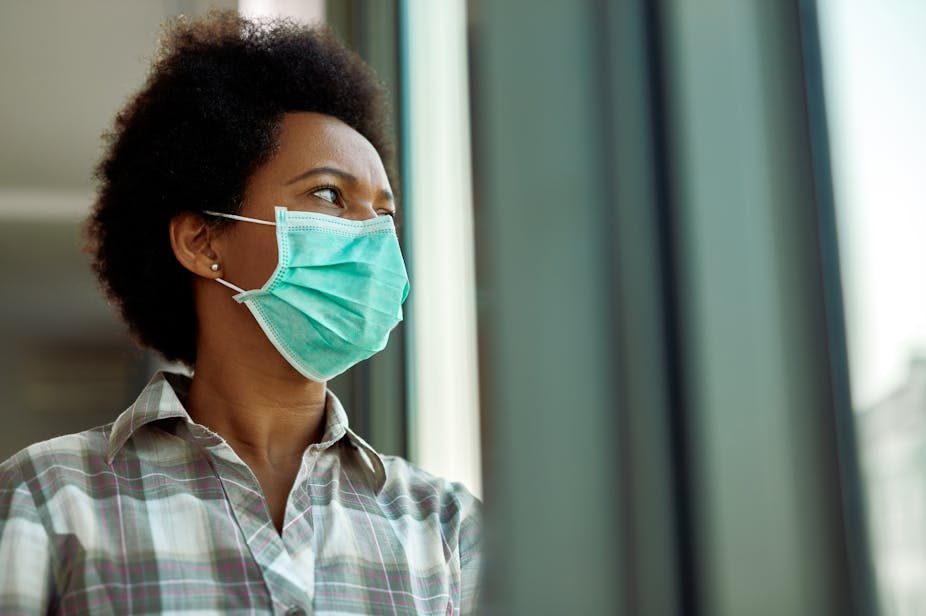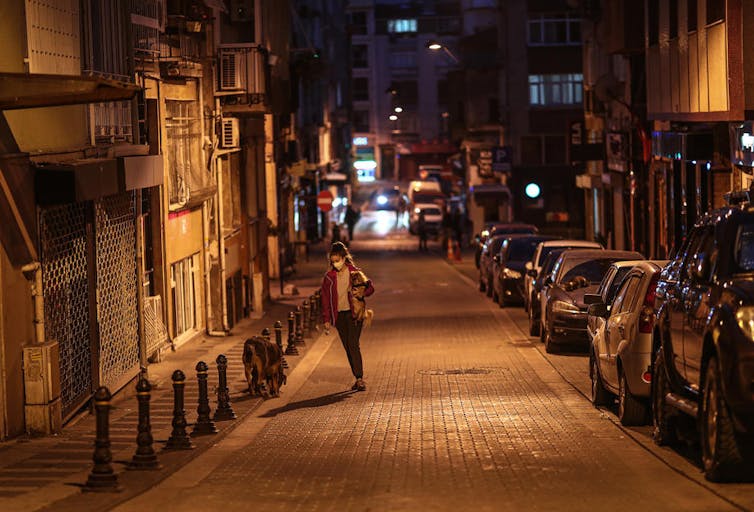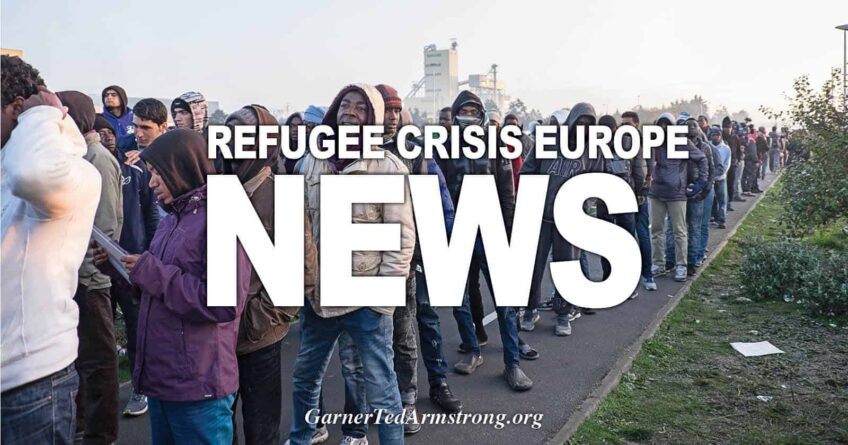
For some survivors of sexual violence, the lockdown has brought on more trauma. Drazen Zigic via Shutterstock
Coronavirus lockdowns are making the recovery of survivors of sexual and gender-based violence who have been forced to flee their homes even harder, according to our new research.
Following a request by Refugee Women Connect, an NGO working with forced migrant survivors of sexual and gender-based violence, we undertook 97 interviews in the UK, Tunisia, Turkey, Sweden, and Australia between April 14 and 28. The work builds on an ongoing research project we’re conducting with refugee survivors of sexual violence and the service providers which support them.
Forced migrants, many of whom live in crowded, sometimes makeshift accommodation with poor access to food, sanitary items, and healthcare, are at particular risk during the COVID-19 pandemic. Those who are also survivors of sexual violence told us how some of the lockdown restrictions are exacerbating their existing vulnerabilities, leaving them at heightened risk of psycho-social problems, destitution, and even further abuse.
At risk of more violence
In Tunisia and Turkey, we heard that only certain groups of forced migrants, for example, those with refugee status, could access support and this was inadequate to cover their basic needs. We heard how work in the informal economy for those with no access to social welfare had dried up, often leaving survivors without any income.
Many women survivors previously relied heavily on NGOs for material and social support. But with face-to-face NGO services stopping or moving online, many of the women we interviewed lacked the basic digital resources necessary to maintain their social connections and make contact with service providers.
One Syrian woman living in Ankara, who is a survivor of both domestic violence and war and now lives alone with her two daughters in unfurnished accommodation, told us:
Whenever I contact the charities, they tell me it is difficult to help me amid this crisis. I am just waiting for this to end so that they can help me. I feel that all the doors have been closed.
The precarious position many survivors of sexual violence are in has also increased their vulnerability to abuse and exploitation during the crisis. Some NGOs that we spoke to as part of the research feared that women would have little choice but to remain in abusive relationships during the pandemic.
In Tunisia, some NGOs told us that unaccompanied adolescent girls had been forced into prostitution during the lockdown. In the UK, trafficked women feared that they would be contacted by their former traffickers, aware that they were desperate for resources. Some NGOs were concerned that the numbers at risk of trafficking would increase.
One Nigerian woman, who is an asylum seeker living in the UK, told us COVID-19 meant she’d become scared of the people around her. She said she was “sometimes worried the traffickers will get my number and make more threats”.
Opportunities to escape domestic violence, which other studies show has increased during the lockdown, were also reduced for the survivors. Unable to access support from NGOs or public services, with sheltered housing closed or unavailable to many forced migrants, women told us they stayed put. In Turkey, some perpetrators of sexual violence and domestic violence were released from prison, which increased women’s levels of risk and anxiety.
 A woman on a deserted street in Istanbul during the coronvairus lockdown. Sedat Suna/EPA
A woman on a deserted street in Istanbul during the coronvairus lockdown. Sedat Suna/EPA
Flashbacks and mental stress
Another grave concern for women and the NGOs supporting them was the increased risk to survivors’ mental health. Forced migrant women can suffer multiple traumas, and often experience sexual or gender-based violence at multiple points in their refugee journey.
Women were unable to continue with treatment for physical injuries, but the greatest harm came from a combination of isolation and the suspension of mental health therapies. For some, the loss of freedom reminded them of their own previous imprisonment, while others said they spent a lot of time “overthinking” past experiences and having flashbacks.
Others had begun to gently rebuild their lives after losing trust in humanity, through therapeutic relations with a support worker or by participating in self-help networks. Some women felt they were slipping backward with the loss of access to these lifelines. One Eritrean woman living in Tunisia with irregular migrant status said she can no longer think about her future:
I now hate my life, I feel as if I were in a jail…the corona came to destroy everything…everything became so hard for us, as if we were frozen inside a refrigerator.
Hopelessness was reinforced by the suspension of some asylum cases in the UK, residence applications in Turkey, and resettlement programmes in Tunisia. Many of our interviewees found themselves stuck in legal limbo with no idea when they would emerge. Some asylum processes have now shifted to remote working. However, without support for survivors from NGOs and social networks, the process of disclosing sensitive information about sexual abuse and torture could risk reopening the trauma.
As well as access to free medical services, survivors urgently require cash to cover food and hygiene costs and access to digital devices. Our findings highlight the grim reality for these women and the need for urgent action to ensure that they survive the crisis and can move on with their lives without encountering further harm.
Click here, if you would like to contact the Samaritans.
[Disclaimer]










